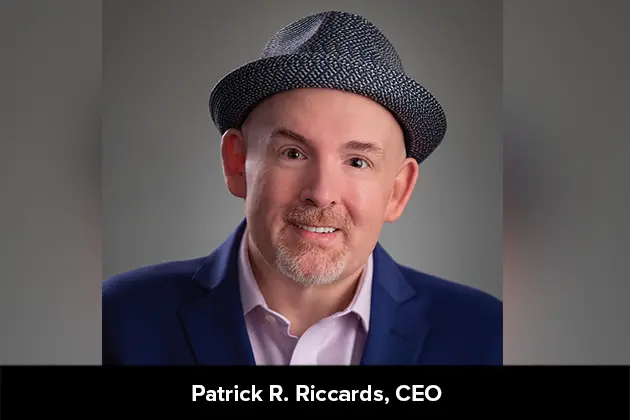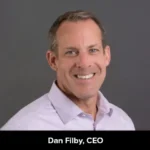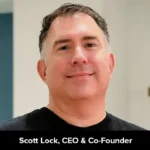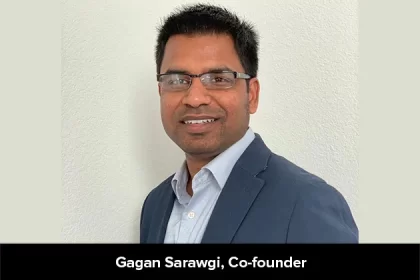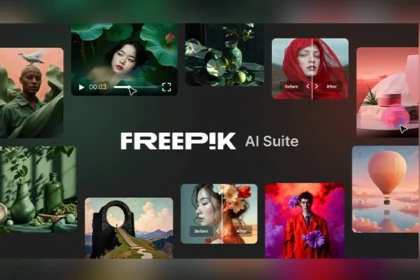Effective leadership is paramount for driving progress and fostering innovation within organizations. Leaders who demonstrate a keen understanding of their team members’ perspectives and needs and a thoughtful approach to decision-making inspire trust and collaboration.
By actively listening, valuing diverse viewpoints, and anticipating challenges, these leaders create an environment where creativity thrives and challenges are met with resilience. Their ability to navigate complexity with wisdom and empathy not only ensures the success of their teams but also cultivates a culture of inclusivity and continuous improvement, propelling the organization toward its goals with purpose and impact.
Patrick R. Riccards, Driving Force Institute’s CEO, established his first business almost 15 years ago, shortly after his daughter was born. His goal was to continue advancing his career while also having the flexibility to be a father to his two children.
He successfully built Exemplar Strategic Communications into a leading boutique firm specializing in communications and public affairs within the education sector. Following this, Patrick founded Eduhack Strategies, which expanded on the strengths of Exemplar by offering strategic development, messaging, and consulting services to top-level executives.
Four years ago, Patrick assumed the role of chief communications and strategy officer at the Woodrow Wilson Foundation. During this time, he delved deeply into finding ways to enhance the teaching and learning of American history. This endeavor became his passion, leading to the establishment of the Driving Force Institute.
Today, DFI is the largest producer of American history education films in the United States, collaborating with renowned organizations such as the NY Historical Society, the Smithsonian, and the American Battlefield Trust. The company’s exceptional work has been recognized with two Telly awards last year and five Shortys this year, acknowledging their production of films that are beloved by learners and essential for educators.
Patrick R. Riccards thinks that effective leaders need to have a positive mindset and be adaptable. Every day brings new challenges in various areas such as operations, finance, human resources, programs, and strategy.
As a social entrepreneur, Patrick cannot waste time dwelling on negativity, nor can he afford to be affected by its negative impact. He said that setbacks are simply opportunities for learning on the journey to success. This success is achieved through flexibility as we stay focused on our goals and desired outcomes. While processes and tactics are important, they alone cannot guarantee success. True success is attained when we can adapt, try new approaches, and take calculated risks.
When Patrick R. Riccards was a young CEO, he believed that being the smartest person in the room was crucial. His main focus was ensuring that the team understood what they were doing, the goals, and the destination. He trusted them to believe in the plan. However, as Patrick gained experience, he realized that the “why” is more important than the “what.”
Everyone needs to understand why they are doing what they are doing and how their contributions contribute to the mission. They need to be part of the collective efforts and believe in the vision. Patrick’s path to success is simple. First, he informs others about what they are doing and why. Then, he builds acceptance by presenting possible solutions. Finally, he mobilizes and puts those solutions into practice. This model has been applied to various fields such as literacy, hospital care, education technology, higher education, the media profession, and now short-form film. Its success lies in its simplicity.
Patrick R. Riccards discusses the impact of technology on the education sector and emphasizes that he is uncertain about how AI will affect education. Unfortunately, the education sector tends to be slow in adopting new ideas.
Many areas within the sector impose strict limitations on the use of AI. However, instead of restricting it, we should embrace AI and explore its potential impact. While we don’t need ChatGPT to write everything for us, we can utilize AI for research purposes. Similarly, we no longer have to rely solely on traditional PowerPoint presentations; AI can help us create professional multimedia presentations.
Rather than trying to remove and devalue technology from education, Patrick says that there should be a focus on maximizing its value. Ultimately, technology has the power to empower and inspire, promoting fairness and merit in the learning process. An effort should be made to leverage the tools that learners have at their disposal every day.
Many areas within the sector impose strict limitations on the use of AI. However, instead of restricting it, we shouldembrace AI and explore its potential impact.



